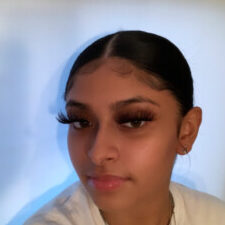Discussion:
You must be logged in to reply to this topic.
- Weekly Assignment
-
February 1, 2022 at 11:21 am #76958

JohanaParticipantDay One HW:
After reading and watching both the video and article, I found it interesting that a person’s name and where they’re from has more meaning than we think. In the video, Mohamed Hassan explained his name and how other people always misjudged him for being white since he has blue eyes and the complexion of his skin. He felt joy when being mistaken as a white man but when asked for his name it was like he felt disappointment. After learning his name and the importance of it including his background and religion, he now appreciates who he is and his name and pronounces his name the way his mother calls him. In the article, Hanif Willis Abdurraqib explains how difficult it is to balance out American life and Arabic life as a teen here in America. He used Zayn Malik, the pop star from One Direction as a role model. Hanif relates to Zayn in terms of having two different realities. I believe it is difficult to balance out the world you live in and the world that’s in your home. I was born and raised in Brooklyn, New York but both my parents are from Honduras. I can relate to Hanif and Mohamed in a way because growing up I always found it annoying when people did not know how to pronounce my name correctly when they would see how it’s spelled. My name is Johana, not with two N’s but with one and with an H. I usually get called “Jo-Hannah” but my name is pronounced, “Jo-Ana.” I also hated the way people thought my name was spelled. There was even a time when a teacher told me my name is supposed to be spelled “Johanna.” After listening to a podcast about our names being our identity, I learned that it is okay to correct others when pronouncing your name wrong and even spelling it wrong. Your name belongs to you and you have the right to correct others. I felt like that was truly important.DAY TWO HW:
1. In his article, Mike Bunn writes “You are already an author.” He is talking about me and I think he means when writing I have the power to write whatever I want and I can choose the words I want in a sentence, so therefore I’m considered the author. The way I write and my choice of words is in my hands so that’s authorship. One of the things I already write is journaling and there I get to talk about my feelings, my decisions, my life, my goals, my family, etc. I have control of what to write so I’m considered an author. This existing expertise can help me now in college reading and writing because like Bunn said “Reading in a particular way could also make me a better writer.” Understanding what I’m reading is important because that way I develop my questions and conclusions and like Bunn said I can understand what the author meant when writing. If someone else read my journal I would want them to be able to understand what I wrote and want my audience to feel my emotions.
2. In Bunn’s article, I realized that he used headings when transitioning to other aspects of his writing. Furthermore, he had sections like “What does it mean to read like a writer?” “How is RLW different from “normal” writing?” “Why learn to read like a writer?” etc. I would like to do this in my writing because I feel like it’s very neat and in order so that’ll also help my audience get a gist and better understanding of what I’m trying to say.February 3, 2022 at 6:51 pm #77156
NovalisParticipantYess! I agree with you. It is okay to correct others if your name is being pronounced wrong. It’s your name and you have the right to be called exactly that and nothing else. Growing up my name was always being pronounced wrong and I would get embarrassed when correcting the person. I learned in that last couple years that I shouldn’t be .
You must be logged in to reply to this topic.


